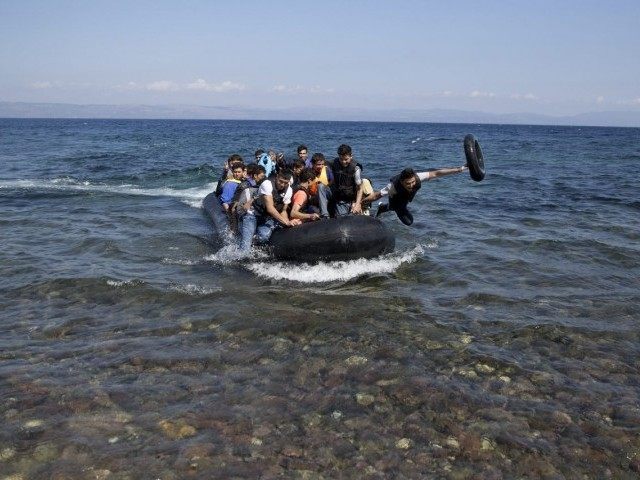People smugglers operating across the Mediterranean have started offering “seasonal discounts” as winter winds turn the sea choppy. In previous years the number of migrants crossing in winter has been as few as one tenth of those crossing in summer, but smugglers are keen to find ways of enticing people to cross throughout the low season, when rough weather makes the passage more dangerous.
People smugglers normally raise their prices in winter as demand declines, in a bid to keep their profits up. But this year, as the greater flow of migrants has given rise to a more competitive market, some Turkish-based smugglers are changing tack, lowering prices in the hopes of encouraging more trade.
“In the summer, we charged $1,200 or $1,300 (£775 – £840) per person,” Abu Fuad, a Syrian smuggler based in the Turkish port of Izmir told The Independent. “In the winter, it will be $1,000 or $900 – cheaper but more dangerous,” he said.
It’s a tactic that appears to be working. At Basmane station, a number of smugglers are already offering transport to Greece at the lower price to the migrants gathering there. Among those seeking a crossing were Isa, 25, from Aleppo, Syria. “They say the price is $900 per person and that we’ll be in Greece after six hours. That’s far cheaper and far longer than we’ve been told,” he said. “I don’t trust any of them, but if we don’t find anything better we’ll have to take the offer.”
Fellow Syrian migrant Ahmad, who hopes to complete his physics degree at Oxford has tried twice already to get to Greece “Both times I was stopped by the coastguard,” he said. “And both times I had to pay the police €350 (£260) to be released with my family.” For the last 10 days he has been waiting for the go-ahead from his smuggler for his third trip, but he is growing impatient: “Ten days ago, the sea was still calm. But it’ll be winter soon. We have to hurry.”
Almost 43,500 migrants entered Greece by sea in 2014. Mahmoud, a Syrian smuggler recounts: “In the summer, we had 300 to 400 people a day. Soon, it will be only 30 or 40.”
Yet such is the flow, that the numbers may not adhere to last year’s pattern. September alone saw three and a half times as many people cross to Greece – 153,000 – many of whom will have been keen to make the crossing before the winter storms set in. So far they show no signs of stopping: last Wednesday, 85 boats landed on the Greek island of Lesbos alone, according to the UN refugee agency UNHCR.
For the smugglers, trade is brisk. Along Izmir’s main boulevard, shops including pizza restaurants sell lifejackets and children’s floats. Migrants fill the cafes and hotels, where they swap currency for Euros and even deposit their fee in “insurance offices,” which only pay the cash out to smugglers once they have landed safely in Greece. In Basmane square, buses offload migrants directly on the doorsteps of smugglers, who barter their trade under the watch of armed policemen. “The police are taken care of,” said Fuad.
Abby Dwommoh, a spokeswoman for the International Organisation for Migration (IOM) in Turkey said: “Historically, sea crossings tend to decrease in the winter months, but the current situation is so dynamic that it’s difficult to make predictions.”
Other tactics which have been used in the past during the winter months include the use of larger ships, such as old cargo ships to make the run. But Abu Jihad, another Izmir-based smuggler said that his colleagues had been discussing a variety of strategies for the winter, including dropping prices and switching to larger boats “The small boats are too dangerous now. Some guys are working on getting big ships like last winter,” he said.
Faud confirmed that his network uses the same small rubber dinghies throughout the year. Although they are more dangerous on higher seas, they do have their advantages. Migrants landing on the Greek islands have been cutting the dinghies up upon arrival to prevent Greek authorities sending them back out to sea again, but as the dinghies are cheap, they are expendable.
Dwommoh highlighted another downside to the cargo ships: “The border agencies have done a lot to crack down on that,” she said, adding that she thought it therefore unlikely that many smugglers would use them. “But due to the high seas it’s possible that we’ll see an increase in activity at the land borders instead.”

COMMENTS
Please let us know if you're having issues with commenting.